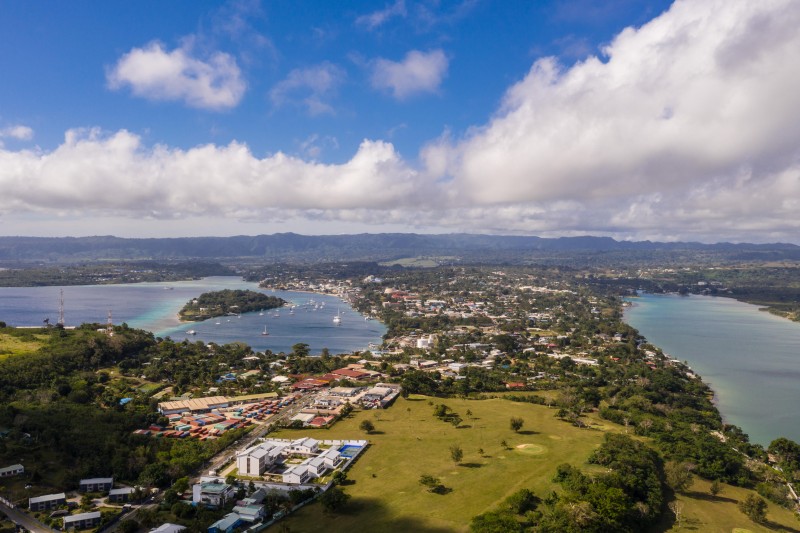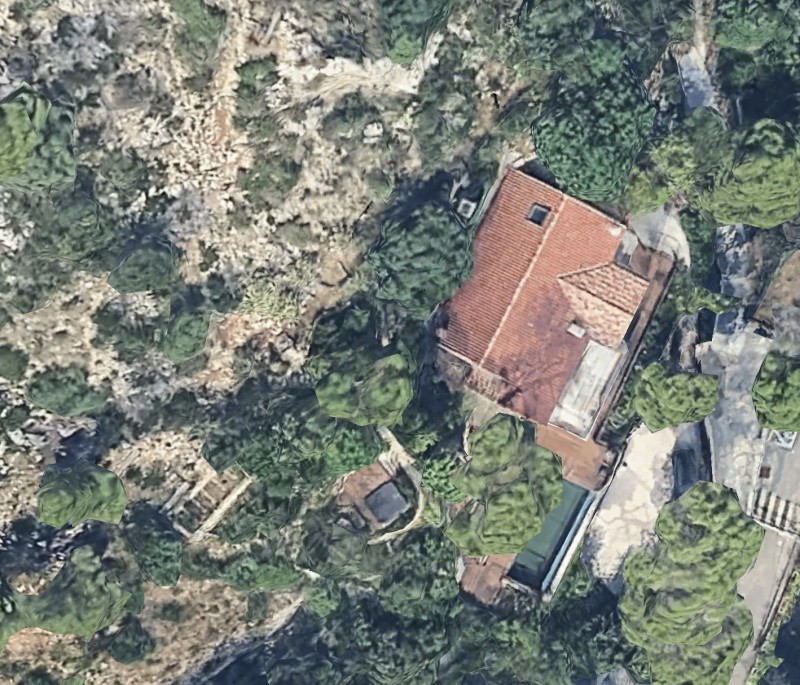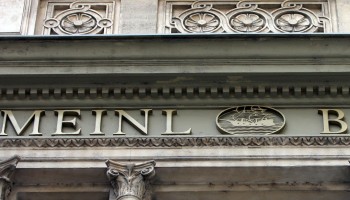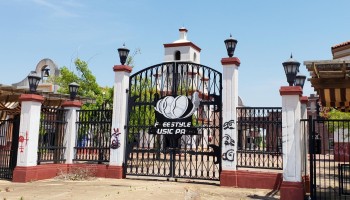Reported by
In early 2018, near the tail end of a major cryptocurrency boom, a Lithuanian start-up called Bankera announced that it had managed to raise over 100 million euros in just six months by selling its own digital coin.
The company said the funds would be used to fashion a “bank for the blockchain era” — a fully fledged retail and investment institution, holding and exchanging most cryptocurrencies and competing with existing banks “as an equal.”
More than 100,000 people had bought tokens in an “initial coin offering,” or ICO — a type of cryptocurrency fundraiser — and had started receiving weekly payments drawn from a share of the fees generated when others bought and sold the coin. Amid a wave of ICOs in 2017 and 2018, the Lithuanian token looked like a potentially lucrative investment.
But seven years after the ICO, the token has collapsed in value, leaving many investors disappointed, and the Bankera project still hasn't achieved one of its self-proclaimed core objectives: acquiring a European Union banking license.
Now, an investigation by OCCRP and its partner 15min has uncovered how the once-promising cryptocurrency project has funded loans benefitting the founders of the venture, with investors left without the promised returns.
Reporters found evidence that a portion of the funds raised in the ICO appears to have been funneled into a sprawling real estate portfolio — including a villa on the French Riviera and high-end property in Lithuania — via a bank thousands of miles away in the Pacific nation of Vanuatu.
The city of Port Vila, Vanuatu's capital.
In the four years following the ICO, more than 45 million euros flowed from a Lithuanian firm owned by Bankera’s three co-founders into an account at Pacific Private Bank (PPB) – a Vanuatu-based bank the three had acquired just before the coin offering ended.
Leaked company records and bank statements show the funds were used to underwrite loans to other companies owned by the same three men, which then purchased high-end real estate. Millions more, also backed by ICO funds, were loaned directly to the three co-founders themselves, often labeled as “personal use.”
Kathryn Westmore, who leads the Royal United Services Institute’s (RUSI’s) work on financial crime policy, said the ICO proceeds should only have been used for the Bankera project.
“To extract funds and seemingly use them to finance personal spending raises suspicions that investors have been misled and [the co-founders] have profited personally,” she said. “Fundamentally this seems to be about misrepresentation of what the [ICO] funds were going to be used for, which raises the question of whether this was a fraud.”
Reporters repeatedly tried to seek comment from Bankera’s three founders, including by traveling to a conference in Malta to attempt to speak with one of them, Vytautas Karalevičius. They sent multiple emails to him and the other founders, Justas Dobiliauskas and Mantas Mockevičius, and their companies, but only received a response from lawyers acting for the Lithuanian firm Bankera UAB, one of several companies in what the lawyers described as the “Bankera ecosystem.”
The ‘Bankera Ecosystem’
In the course of this investigation, reporters found several companies in various jurisdictions involved in the Bankera project or the ICO, as well as in receiving, holding, and moving ICO revenues. They sent requests for comments to these companies or their representatives, and directly to Karalevičius, Dobiliauskas, and Mockevičius.
Those lawyers declined to comment on specific transactions, but cited the purchase of PPB as evidence that funds raised in the ICO “were used towards the development of an innovative neobank using blockchain technology.” The movement of funds into the Vanuatu bank’s account “had always been intended” and was carried out because “sums were given as grants to multiple Bankera ecosystem companies,” the lawyers wrote.
While the lawyers acknowledged that the Bankera crypto token’s value had “diminished significantly over time,” they said the “Bankera brand is now well known and successful” and denied that the ICO was in any way fraudulent. They declined to comment on the specific transactions related to the loans to the co-founders and their companies, and the property purchases.
Lawyers for PPB declined to comment on the transactions revealed in the leaked banking materials, citing Vanuatu’s banking secrecy law.
PPB’s managing director, Eimantas Kazlauskas, said the bank complied with all Vanuatu banking laws and regulations.
And PPB’s resident director, Martin St. Hilaire, said: “The goal of acquiring Pacific Private Bank by Bankera was to transform it into a modern digital bank for the blockchain era, which is being successfully done one step at a time.”
“From my standpoint, PPB has always been compliant and a good example of a small independent private bank,” he said.
The Central Bank of Lithuania told OCCRP it had contacted law enforcement regarding the Bankera ICO, but said it could not “disclose any details” due to legal restrictions.
A ‘Bank for the Digital Era’
Karalevičius, Dobiliauskas, and Mockevičius were all born in the late 1980s in Šiauliai, a city of about 120,000 people in northern Lithuania.
Karalevičius is the son of a public health official and a plastic surgeon who became a politician, and Dobiliauskas is the son of a public prosecutor and a senior banker. Mockevičius’ father is a civil judge and his mother worked in school administration.
They were all in their late 20s when Bankera started offering its token, known as BNK, for sale in August 2017. A fourth man, Ugnius Šimelionis, was a co-founder of multiple “Bankera ecosystem” companies, but sold his stakes in them to Karalevičius, Dobiliauskas, and Mockevičius in October 2017, shortly before the launch of the ICO. Šimelionis told OCCRP he sold his shares because his and the other founders’ “long-term visions for the company’s direction didn’t fully align,” and said he had no involvement in the ICO or any other Bankera activities since.
Bankera's co-founders as displayed on the Bankera website.
By the time of the ICO, Karalevičius, Dobiliauskas, and Mockevičius had already established multiple digital financial service companies serving hundreds of thousands of customers, according to a white paper published by Bankera in 2017. These included three companies that would play key roles in the Bankera ICO: Pervesk UAB and Spectro Finance UAB, both registered in Lithuania, and Finalify Ltd., which was registered in the British Virgin Islands.
Finalify issued the BNK tokens, and Spectro Finance operated the “virtual currency exchange” — an online platform to trade digital currencies — where people could buy Bankera’s tokens using either traditional “fiat” currency or other cryptocurrencies.
Potential investors had to set up a wallet for their tokens with SpectroCoin, owned by Spectro Finance, and they sent payments for BNK to an account at Pervesk, according to payment documents from multiple investors seen by reporters. Pervesk is an “electronic money institution” — a company licensed to issue electronic money and process digital payments — which Spectro Finance used to handle proceeds from the ICO.
In its white paper, Bankera compared holding its tokens to owning shares in a publicly listed company, in the sense that they could be bought and sold after the ICO. (Lawyers for Bankera UAB told OCCRP it was incorrect to characterize the “ICO as being akin to the raising of equity.”)
Token holders would be entitled to discounted rates for Bankera services and products. They would also receive a weekly payout. Each week, Bankera would collect fees on transactions — and then, after deducting costs, it would put aside 20 percent of the remaining amount and distribute it to BNK holders in proportion to the share of the tokens they held.
Bankera’s resume was bolstered by the backing of prominent political and business figures. At the time of the ICO, the start-up’s advisers included two members of the European Parliament, a former head of the Lithuanian tax authority, a former president of one of the country’s largest banks, and a globally recognized blockchain entrepreneur.
The Bankera ICO Advisers
Pre-sales of the currency appeared to be a hit. On August 28, 2017, Bankera tweeted: “Please lower your orders so everyone could get some tokens!”
The following month, the company announced that it had reached its initial target of 25 million euros nine days ahead of schedule. In February 2018, it said it raised a total of 100 million euros.
Andreas Horb, a German financial advisor, told OCCRP that the prospect of weekly payouts was a “key selling point” and helped convince him to buy about 2,000 euros worth of BNK.
Despite the apparently enthusiastic uptake of the BNK token, more than six years on, its market capitalization — the total value of all issued tokens — has fallen to just $1 million, according to data from the Ethereum blockchain, which hosts the token. As BNK’s value collapsed, so did the payments to coin-holders. Eventually, in 2022, the revenue-sharing scheme was halted. But some investors say problems emerged much earlier.
“Things started to change in 2018, a few months after the ICO launched,” Horb said. “The payouts began to drop significantly below the promised amount.”
Lawyers for Bankera UAB said that during the ICO the token was purchased “by speculators hoping for a ‘boom’,” and that the “relatively early abandonment of the BNK tokens by such individuals naturally played a part in the slide in value.”
As weekly earnings from the revenue sharing scheme dropped, Horb said he and his friends tried to contact Bankera’s founders and managers: “We had regular conversations with them at first, but eventually they stopped responding after a wave of investor complaints.”
Ryan Woodhouse, a British telecoms engineer, told OCCRP he bought 4,000 British pounds worth of Bankera tokens.
“The concept looked amazing,” he said. But, he added, “it quickly became clear that the token had lost all its value when they stopped paying the weekly returns.”
The decline in the value of the BNK tokens underscores the risks of investing in cryptocurrency, a largely unregulated area of finance, experts said.
“Investing in cryptocurrency at that time was like buying magic beans,” said Ray Blake, a financial crime expert and director of the Dark Money Files.
RUSI's Westmore described the rash of ICOs in 2017 and 2018 as “the epitome of the wild west of crypto,” adding that people facing losses from cryptocurrency investments often struggle to win compensation due to the lack of oversight of the sector.
The Bank of Lithuania told 15min that it had received “a few individual complaints” about Bankera’s ICO, but said it had directed the complainants to the financial supervisory authorities in the British Virgin Islands, where Finalify is registered.
Half a World Away
In January 2018, in the middle of the ICO, Karalevičius, Dobiliauskas, and Mockevičius were also buying a bricks and mortar bank half a world away.
Pacific Private Bank Ltd., known as PPB, is a boutique financial institution in Vanuatu, a Pacific nation inhabited by around 300,000 people that has been criticized for facilitating international tax avoidance and providing “golden passports” to people with questionable backgrounds.
On its website, PPB describes its mission as serving “wealthy, private clients from around the world” with a focus on wealth and asset management and offering “tailored investment solutions.”
“We accommodate to [sic] the individual objectives of every customer by providing personalized private banking services.”
Bankera’s co-founders heralded the purchase of PPB as a step toward becoming “a bank for the blockchain era and a one-stop store for all financial services,” a goal which would now be delivered “ahead of schedule.” The sale price was not disclosed.
The month after the trio bought PPB, millions of euros started moving from Spectro Finance’s account at Pervesk — where BNK purchasers had sent their payments for tokens — into an account also held by Spectro Finance at PPB, leaked records from the Vanuatu bank show.
The first transfer — 15 million euros — took place on February 14, 2018, just weeks before the ICO’s conclusion. Another 2.8 million euros were sent six weeks later, followed by 12 million euros six months after that. The leaked bank records give no purpose for the transfers, which are listed only as “transfer between own accounts.” An additional 15 million euros were sent in other transfers between August 2020 and September 2021.
Lawyers for Bankera UAB said it was “not disputed that funds were moved into accounts with Pacific Private Bank,” but added that there is no “obligation to publicly set out the use of all the funds raised by the ICO.”
In November 2019, 25 million euros were sent from Spectro Finance’s PPB account to another PPB account held by Finalify, the British Virgin Islands company that issued the Bankera tokens. The credit was the first activity in the Finalify account.
In April 2021, the same Spectro Finance account also transferred 20 million euros to a PPB account held by Spectro Finance Systems Ltd., another firm registered in the British Virgin Islands in 2019 by Mockevičius, one of Bankera’s founders.
All three PPB accounts — Spectro Finance’s, Finalify’s, and Spectro Finance Systems’ — pledged funds to back loans by PPB to Bankera’s three young co-founders or their companies.
A Villa on the French Riviera
Before the acquisition of PPB was announced, Bankera built up an air of suspense by promising “a very big announcement” was on the way. But once the news broke, the venture insisted that Bankera and PPB were remaining “separate projects.”
PPB never became a cryptocurrency bank. Instead, leaked banking records show, it repeatedly borrowed money from Spectro Finance, Finalify, and Spectro Finance Systems. It then loaned the same amounts to Bankera’s three co-founders and to other companies they controlled.
On October 10, 2019, Spectro Finance’s PPB account was debited 1.7 million euros for “B2B purposes,” a leaked bank statement shows. The same day, PPB disbursed a loan for an identical amount to a Monaco-based company called Azur Estates (SCI), registered by two of Bankera’s founders, Karalevičius and Mockevičius, the previous August. The money was paid into a previously empty account held by Azur at PPB, the statement shows.
Less than two weeks later, on October 22, Azur sent the 1.7 million euros to an account it held in Lithuania. Then, six days after that, the company bought a four-bedroom villa in Èze, a seaside village between Monaco and Nice, for 1.1 million euros. Azur paid for the house in full using corporate funds, according to French property records seen by OCCRP.
According to French property records, Azur intended the villa to serve a residential purpose. The 1.7-million-euro loan matured a year later, but Azur simply took out another loan from PPB, for a similar amount, to pay the original loan back. Karalevičius and Mockevičius also repaid loans with new loans. (It is not clear whether other loans were eventually fully paid back.)
Experts said the use of such “back-to-back” loans offered potential advantages, by creating paperwork to support property purchases and helping to keep the bank’s books balanced.
“The bank that is receiving funds for the French property would want to check the source of funds,” said Alison Jimenez, president of Dynamic Securities Analytics, a Florida company specializing in compliance and financial crime litigation. A documented paper trail would indicate that the bank providing the loan has conducted due diligence on the recipient, she said.
“If you have a pledge from a company that appears to be a separate entity, and has money in its account, then it doesn’t then appear to be simply taking money out of the bank,” said RUSI's Westmore. “The opaque way these transactions were structured also raises questions about [their] legitimacy.”
A bird's-eye view of the four-bedroom villa in Èze, France.
Reporters sent detailed questions to Finalify, Spectro Finance, and Mockevičius, who is named as the representative for Azur, but did not receive any responses. Lawyers for Azur did not respond to questions by the time this article was published.
Azur took another three loans from PPB amounting to 800,000 euros between August 2021 and July 2022, leaked statements show.
These loans were guaranteed with part of the 25 million euros of ICO proceeds that Finalify received from Spectro Finance in 2019. Finalify agreed to deposit the full 800,000 euros at PPB for five years to guarantee Azur’s repayment, leaked pledge agreements show.
One Man, Many Hats
The name of one PPB employee, Eimantas Kazlauskas, appeared repeatedly in transactions related to the trio and their companies.
In other cases, PPB loaned money directly to the trio — again, apparently to fund real estate purchases.
On December 15, 2020, for instance, Finalify’s PPB account was debited for 360,000 euros in relation to a pledge agreement, according to the bank statement. The same day, PPB loaned the same amount to Mockevičius.
Two days later, Mockevičius transferred 329,604 euros to yet another PPB account, this one held by a Liechtenstein-registered foundation, Eternity Ventures Foundation, which company documents show was set up by two of Bankera’s co-founders and whose 2020 bylaws named family members of each of Karalevičius, Dobiliauskas, and Mockevičius as beneficiaries. On December 18, Eternity paid the exact amount to buy a plot of land in the Old Town of Lithuania’s capital, Vilnius.
Another 300,000 euros were debited from Finalify’s account on November 10, 2021, for a pledge agreement. That same day, PPB disbursed a loan for the same amount to Mockevičius, who transferred 300,000 euros to Eternity, also on the same day. Two days later, Eternity paid out just under 290,000 euros for more real estate in Lithuania.
Including those transactions and others, Eternity received a total of just under 1.8 million euros from Mockevičius and Dobiliauskas between the summer of 2019 and the end of 2021, according to Eternity’s leaked PPB bank statements. Over the same period, it bought a total of five properties in Lithuania for more than 1.3 million euros.
In mid-2018, shortly after the end of the ICO, a Vanuatu-based company called Rational Pacific Investments Ltd., then owned by PPB, bought another local company — called Beachfront Properties — which in turn owned Villa 25, a luxury resort in a secluded seaside district just outside the capital, Port Vila, according to registry documents from the Vanuatu Financial Services Commission.
The villa, which boasts a private pool and beach, promises “barefoot luxury by the sea,” and can be rented for up to 125,000 Vanuatu vatu (about $1,000) a night during peak season.
Villa 25 in Port Vila, Vanuatu.
Lawyers for Bankera UAB declined to comment on the transactions involving Eternity. They said the Vanuatu villa “is owned by Pacific Private Bank, and has historically been let out to guests and used by/for staff (including management). We understand that it is currently being used as an office due to damage caused elsewhere by the Port Vila earthquake. There is nothing remarkable about this.”
Between May 2019 and May 2023, PPB also loaned Mockevičius a total of 5.4 million euros and Dobiliauskas 3 million euros — 4.2 million euros of which were explicitly listed as being “for personal use,” leaked bank statements show. Karalevičius was loaned 5.2 million euros, which the statements say are for “investment.” These amounts were almost all guaranteed by Finalify, Spectro Finance Systems, or Spectro Finance.
Tax Dispute
In 2021, a dispute with Lithuanian tax authorities revealed that Mockevičius earned millions from the Bankera ICO before it had even begun.
Growing Scrutiny, Few Sanctions
Karalevičius, Dobiliauskas, and Mockevičius remain public faces of Lithuania’s cryptocurrency industry, appearing at — and sponsoring — conferences in Vilnius and internationally.
As for Bankera itself, the website remains active, and purports to provide “a modern bank account alternative for individuals and businesses,” though it has yet to receive an EU banking license. (Lawyers for Bankera UAB said ICO proceeds were used to secure an “electronic money institution license within the EU” for Pervesk, the e-money company involved in the Bankera ICO which lawyers described as “a Bankera ecosystem company.”)
Pervesk remains active. In 2023, the company claimed to have processed almost 2.5 billion euros worth of transactions and reported 4.8 million euros in revenues.
And Spectro Finance’s virtual currency exchange, which claimed to serve 300,000 customers at the time of the ICO, now says it helps more than one million users “buy, sell and exchange popular cryptocurrencies.”
In 2018, Lithuania’s central bank fined Pervesk 700,000 euros for violations of Lithuanian banking laws. Karalevičius, Pervesk’s manager, was fined 500,000 euros.
Pervesk was blocked from accepting or making payments. But by January 2019, the central bank had lifted the restrictions after Pervesk provided more information, improved its monitoring of business relationships, and “addressed other deficiencies identified during the inspection.” Two years later, a settlement between Pervesk and the Bank of Lithuania reduced the fine imposed on Pervesk to 244,000 euros, and canceled the one on Karalevičius altogether.
The details of the settlement remain confidential.












